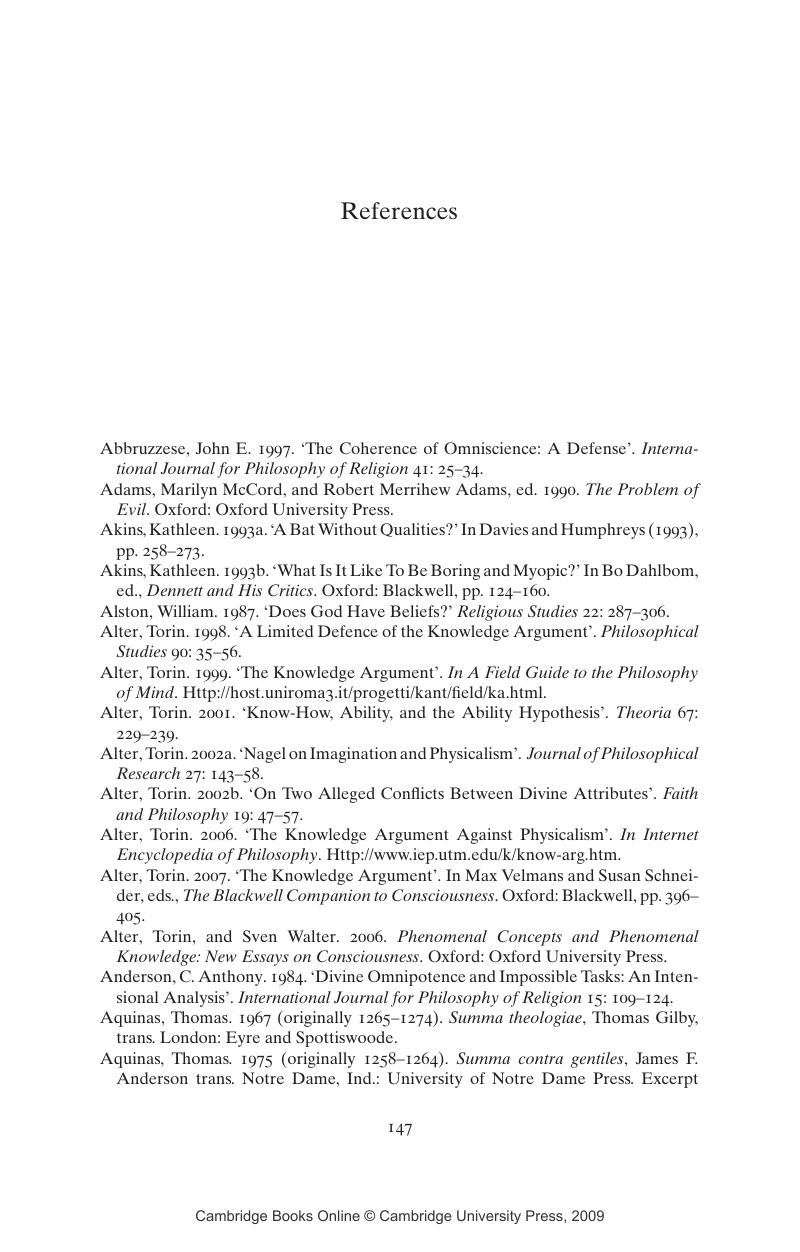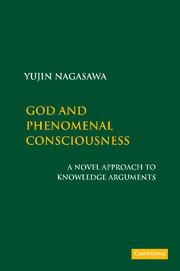References
Published online by Cambridge University Press: 23 July 2009
Summary

- Type
- Chapter
- Information
- God and Phenomenal ConsciousnessA Novel Approach to Knowledge Arguments, pp. 147 - 158Publisher: Cambridge University PressPrint publication year: 2008



